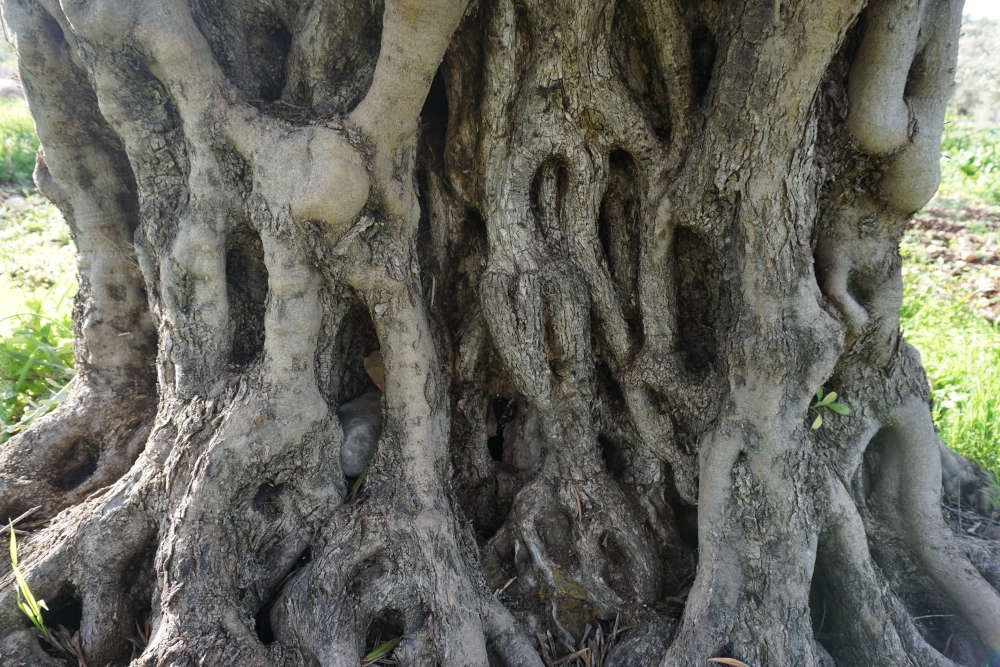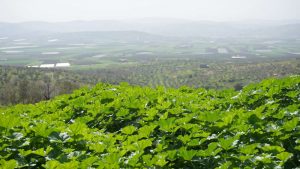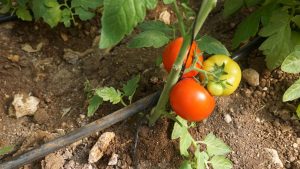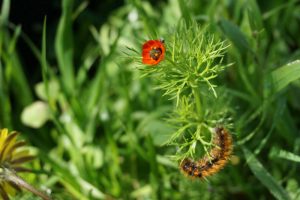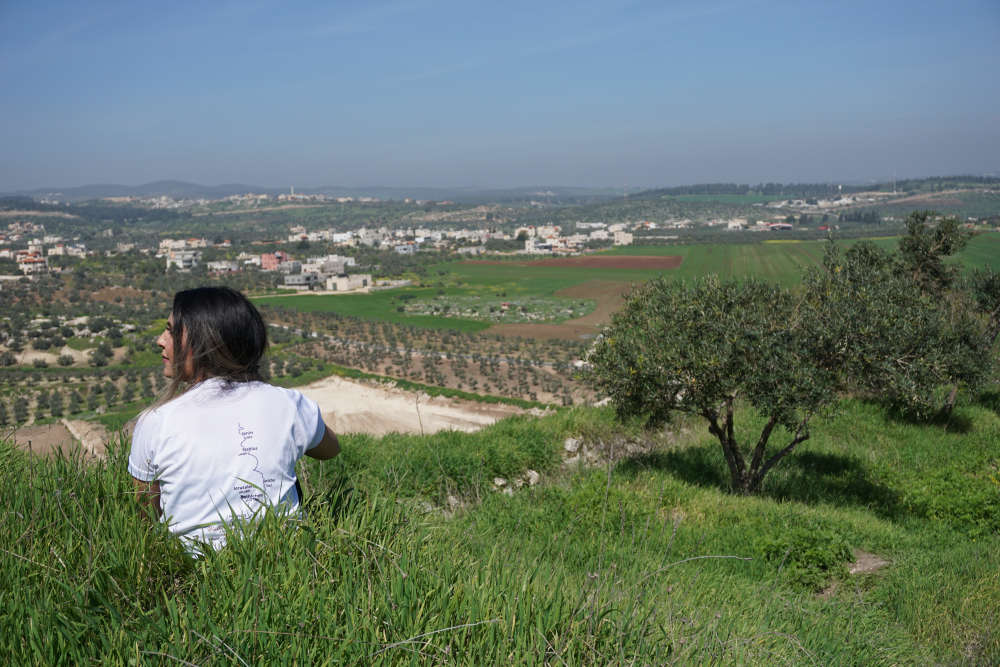There is no better way to explore the rich agricultural fields of Jenin than by passing through them on foot. In springtime, beautiful carpets of khobezeh (common mallow) that extend along the edges of barley and wheat fields await the hikers. Some might not know that this wild plant is actually one of the delicacies of the season. The healthy leaves taste great when sautéed with onions and olive oil. Wildflowers grow everywhere and add vivid colors to the overwhelming greenness of the place; among them are cyclamens, anemones, wild mustard, mountain tulips, and various kinds of orchids.
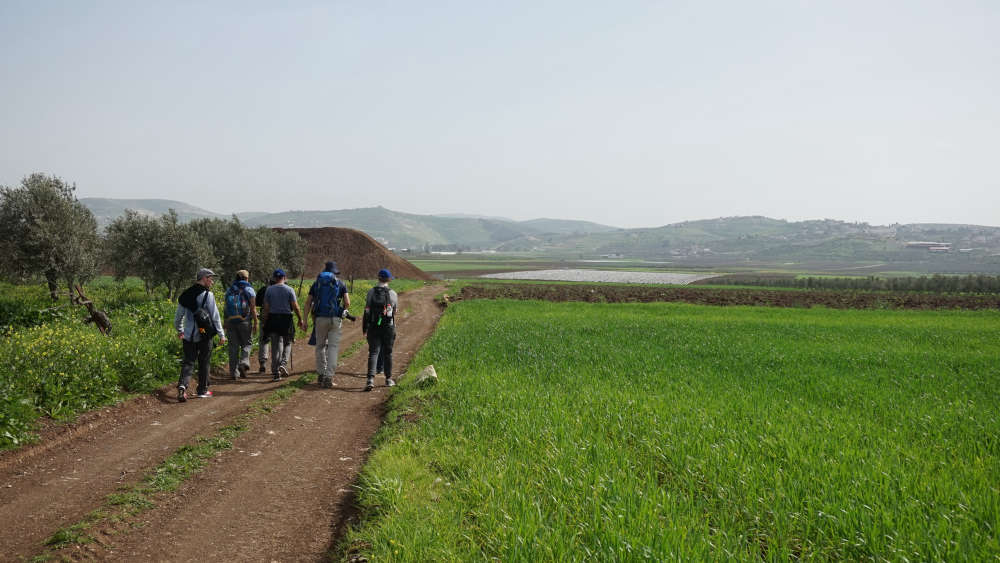
The area offers a spectacular sensory experience, especially during spring, when everything is freshly green and ready to be picked from a patch and eaten along the way. Imagine passing through fields of green onions dotted with wild fennel plants. Of course, out of respect for the farmers’ hard work, be sure to taste only modest amounts of the goods, and, when possible, ask the owner’s permission before indulging. Palestinian farmers are very generous and often share their crops with passers-by. So in addition to being invited to stop for a cup of tea or coffee (when available), you might be offered a head of fresh lettuce or a handful of green almonds to enjoy along the way.
Having a Palestinian guide who grew up in the area or at least somebody who speaks Arabic well to accompany you on the trek would be a great advantage. That person could introduce you to others living in the area and create connections with a variety of local people – for example, the Bedouins, who lead a simple life and take care of their animals, and the hard-working farmers, who can often be seen on their tractors, plowing their fields.
If you would like to spend a weekend in the Jenin region and walk a specific, official trail, you could follow the Masar Ibrahim al-Khalil (www.masaribrahim.ps). Start your weekend with a hike from Rummana to Burqin, stay overnight in Burqin, and on the next day continue towards Arraba. The hike will take you through groves of massive, ancient Roman olive trees and lands dotted with orange pottery shards that also date to Roman times. One of the important sites in the area is the elegant Burqin Church that is believed to mark the spot where Jesus healed ten lepers of their disease (Luke 17:11–19). The old core of Arraba is also a place that should not be missed. The town is known for its splendid palaces that date to the Ottoman period. The mansions were built by the Abd el-Hadi family that was, at the time, actively engaged in local and international politics.
Arranging a local family homestay (available in many places across Palestine) offers an interesting alternative to typical guesthouse or hotel accommodations. Spending time with a local family can offer insight into Palestinian culture, traditions, and cuisine; and if you’ve been studying Arabic, it provides a great opportunity to practice. The families often prepare delicious traditional meals such as maqloube (a rice and vegetable delicacy with chicken or meat) or warak dawali (stuffed grape leaves), which are rarely available in restaurants.
Travel tip: Jenin can be reached conveniently by public transportation from Ramallah or Nablus. Shared taxis can take you to the smaller villages in the Jenin area for around five to eight shekels per person.
To learn more about various sites in Palestine, visit our website at www.visitpalestine.ps, or contact the Visit Palestine Information Center in Bethlehem via info@visitpalestine.ps or (02) 277-1992, or visit us in Bethlehem.

